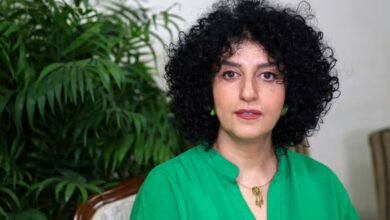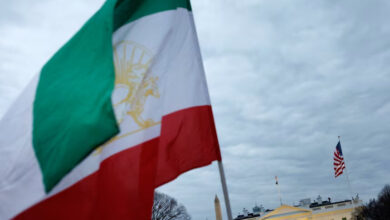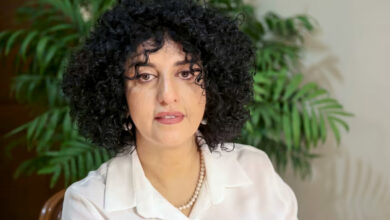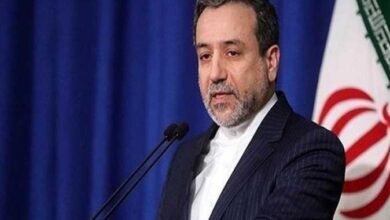Australian Foreign Minister Kevin Rudd said that his government is providing all the legal and consular support for the Wikileaks founder Julian Assange, adding that he is totally against the release of the diplomatic confidential US cables.
In an exclusive interview with Al-Masry Al-Youm, Rudd said that the whole issue of "so called WikiLeaks" is left for legal authorities to determine who's responsible for the release of such documents.
Speaking during his two-day visit to Egypt this week to celebrate the 60th anniversary of the establishment of Australian-Egyptian diplomatic relations, Rudd described relations between the two countries as strong but said both sides need to work more on their economic ties.
Al-Masry Al-Youm: Some argue that Australia hasn't provided enough support for Julian Assange because it doesn't want to clash with the United States. Do you agree with that?
Kevin Rudd: I disagree with that. The reason I do so is that I was clear from the beginning, Mr. Assange is entitled to exactly the same consular and legal support that we provide for any Australian citizen abroad anytime they find themselves in difficulties with legal authorities. We've contacted him and the Australian Embassy attended his appearance in court. We've offered regular consular visits to guarantee his wellbeing and the adequacy of his legal representation.
We also expect that any other country examining Mr. Assange's actions also impartially apply their laws in examining these matters as well, including the government of the United States and other governments.
Al-Masry: Ex-Australian Prime Minister John Howard sent Australian troops to Iraq and you pulled them out. Now where is Iraq in your foreign policy?
Rudd: When I was elected prime minister of Australia in 2007, our policy was very clear: we would withdraw our forces. And that's exactly what we did. Our responsibility for the government of Iraq is to provide strong, continuing support for education, health, community building and agriculture.
When Iraqi Prime Minster (Nouri) al-Maliki came to Australia I asked him how I could help. He said he needs lots of scholarships for agricultural training and research for dry land farming in Iraq. We do a lot of that in Australia so I agreed to provide them with scholarships, and now we have Iraqi experts studying all over Australia, and they are learning how to apply farming techniques in their very dry land.
Al-Masry: Is it the same level of support that you provide to Afghanistan?
Rudd: Afghanistan has always been a different challenge. Remember, Afghanistan came about because of the extraordinary attacks of 2001. This was an attack by Al-Qaeda, a terrorist organization, which was backed and supported by the Taliban.
We went in to get rid of the Taliban and help build a new Afghanistan. It’s tough, it's hard, it's difficult. But we've made some real progress in health, education and infrastructure, but also most critically in training the army and police who will take charge of security in the next couple of years.
Al-Masry: Then your troops will be in Afghanistan even with the casualties?
Rudd: We've already had casualties. We understand that it's a difficult and a bloody operating environment. But at the same time we need to be clear cut with the progress that has been made. I spoke recently with (Afghani President) Mr. Hamid Karzai and he stated clearly the date for the withdrawal of foreign forces, for them to take on the security of their own country by 2014. We are helping them in delivering those responsibilities by that date.
Al-Masry: Where is the Middle East in Australia’s foreign policy?
Rudd: Australia is a middle power with global interests. When I said that we are supporting the UN this means that we support bilateral and multilateral relations. We are expanding our diplomatic representations in Africa and our embassy in Addis Ababa is working very closely with the African Union. We are also increasingly active in the Arab region and the GCC (Gulf Cooperation Council) in particular. But as for my reason for being here as a foreign minister, and I was speaking with president (Hosni) Mubarak about this, it is to underline again the importance we attach to this relationship. It's 60 years and I'm here to plan the next 60 years.
Al-Masry: How do you evaluate this relationship?
Rudd: It is strong relationship. We need to do more in the economy. We are very good at mining. Egypt has many resources. Let's work together on that. Egypt also is a dry country with a vast interest in dry land farming. We can help with that.
Al-Masry: The Israeli press expressed mixed feelings about your visit to Jerusalem, especially following the assassination of Hamas Leader Mahmoud al-Mabhouh in Dubai. How will you handle this?
Rudd: In terms of the incident in Dubai, our position was very clear. No one should abuse the Australian passport system. That's why we acted the way we did. However, we are a long-standing friend of Israel–but this doesn’t mean that you naturally and inevitably do everything that Israel wants. We've had close relations for many years. At the same time we have very close relations with our friends in the Arab world.
We are deeply concerned about the fact that the roadmap to peace did not produce an outcome. We are concerned about the recent obstacles in the peace process. We have to get to a conclusion.
Secondly, and fundamentally important for the security of the region, is the nuclear program in Iran that affects all the states of the region, not just Israel. Therefore we have to be able to work with our friends of the Arab world and with the Israelis on the challenges that Iran represents.




